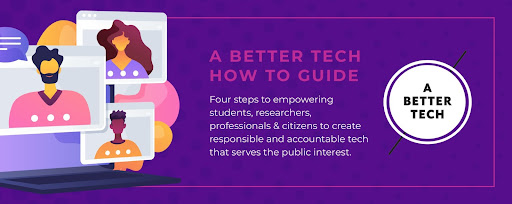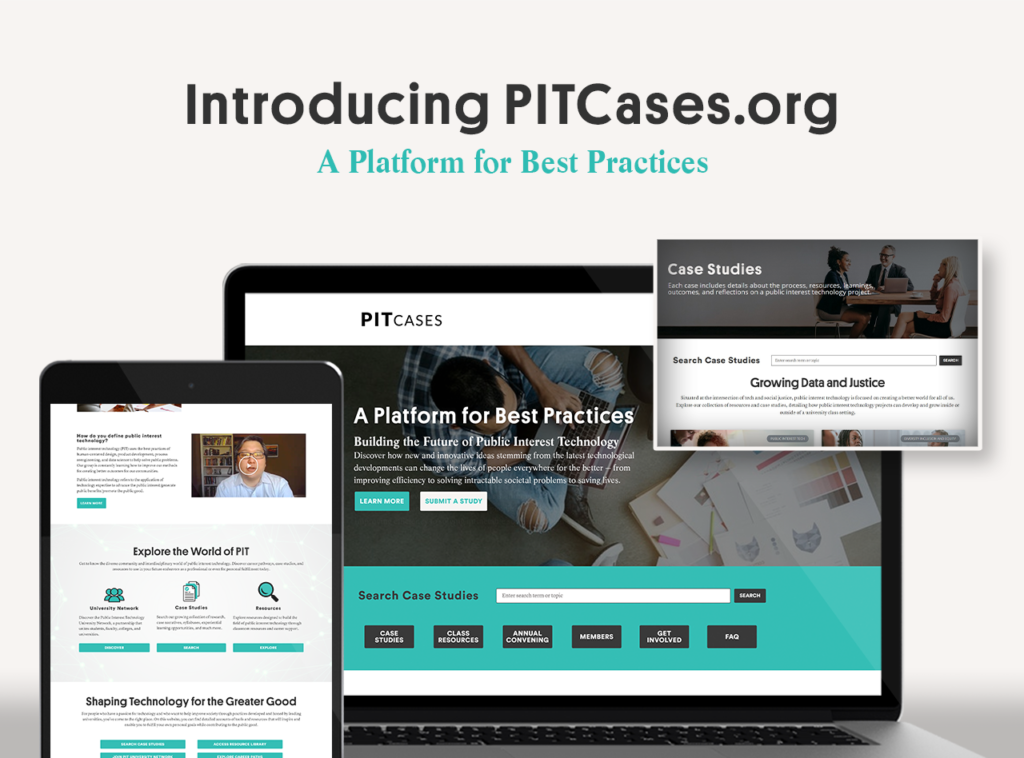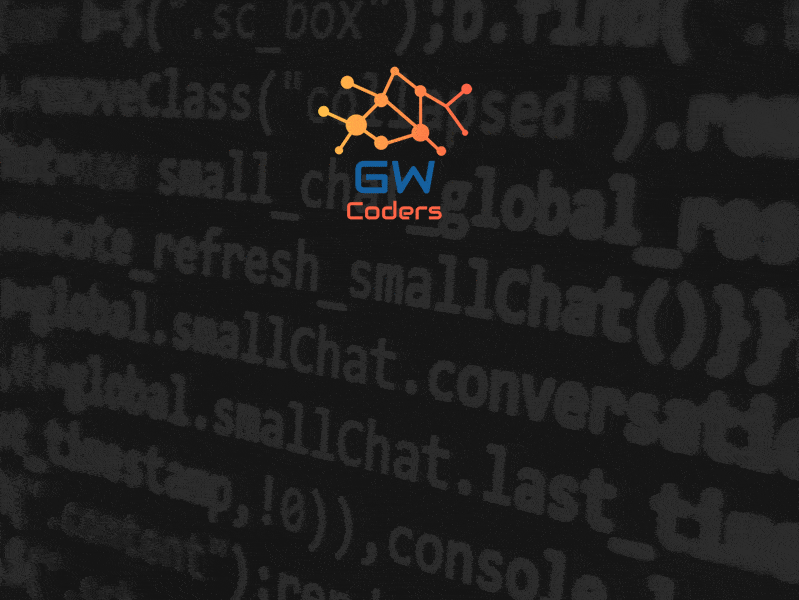Public Interest Technology University Network 2021 Year in Review
A Year of Field Building
The Public Interest Technology University Network (PIT-UN) launched in 2019 and in two years has harnessed the power of the Network to propel the field forward on a national scale. From the field’s first dedicated career fair to another PIT lab, the following are just some of the launches in the space that will have far-reaching impact for everyone who teaches, learns about, and supports public interest technology.
The Launchpad
New PIT products and projects that are growing the field through student outreach, faculty support, and thought leadership.
New York University: A BETTER TECH: Public Interest Technology Convention and Career Fair
The A BETTER TECH: Public Interest Technology (PIT) Convention and Career Fair took place virtually on Oct. 14-15, 2021, for professionals, researchers, and students interested in creating a better world through technology. It was the first convening of its kind in the U.S., bringing together the country’s most talented students and leading researchers with organizations and companies that are at the forefront of creating responsible and accountable tech that serves the public interest.
RELIVE THE EVENT
Day 1 and Day 2, plus:
- Keynotes: Seven keynotes and 15 speakers
- Ideas presentations: Brilliant ideas from public interest technologists working at the Ford Foundation, Snapchat, government agencies, universities, and the private sector
- Workshops: Seven workshops
- Dialogues
- Virtual Career Fair: The career fair partnered with 13 universities across the PIT-UN and brought together 769 students and 38 employers.
- Hackathon: The two-day A Better Tech-a-thon event was an opportunity for nearly 300 participants to collaboratively apply their skills to innovate on a wide range of active tech-for-good projects, sourced from the Code for America Brigade Network and DemocracyLab.
Learn more at ABETTERTECH.net
Public Interest Technology Lab at the Harvard Kennedy School’s Shorenstein Center
The Public Interest Tech Lab provides Harvard students and faculty with access to technological infrastructures, gadgets, algorithms, know-how, and key resources to better understand how technology can address — or worsen — society’s greatest challenges.
Led by Latanya Sweeney, Daniel Paul Professor of the Practice of Government and Technology at Harvard Kennedy School and in the Harvard Faculty of Arts and Sciences, the lab is based at the Shorenstein Center and aims to connect with interested students and faculty from across the university, as well as engaging with PIT-UN.
The lab cultivates a practical, hands-on understanding of today’s technologies that enables students and faculty to work toward a society where technologists expect and demand technologies be created and used responsibly; shine a light on where technology can better deliver services; and question the appropriate use and design of certain technologies and whether some technologies should be created at all.
Learn more at TechLab.org.
Read about the 2021 grantee project, Technology Studies to Save the World.
Howard University: PITCases.org
Three PIT-UN members — Howard University’s Noha Hazzazi, Georgetown Law Center’s Tanina Rostain, and Margaret Hagan from Stanford Legal Design Lab — joined together to develop a user-friendly community platform to showcase best practices from existing PIT projects. The joint effort resulted in the newly launched pitcases.org, a case study website to showcase narratives of past PIT projects. Read more here.
Stanford University: Developing an Ethics Review Board for Artificial Intelligence Research
The recently formed Ethics and Society Review (ESR) requires researchers seeking funding from the Stanford Institute for Human-Centered Artificial Intelligence (HAI) to consider how their proposals might pose negative ethical and societal risks, to come up with methods to lessen those risks, and, if needed, to collaborate with an interdisciplinary faculty panel to ensure those concerns are addressed before funding is handed over.
“Unlike other professions such as law and medicine that have a history of institutional processes for considering ethical issues, computing doesn’t really have a strong institutional response; it lacks any sort of widely applied ethical or societal review,” Michael Bernstein, associate professor of computer science and the project co-lead, told the university website in June 2021. “So how do we get people to engage in this? The ESR’s main insight was that we have one point of leverage, which is when researchers are applying for internal funding. Our idea was to work with the grantor so that funding isn’t released until the teams have completed an ethics and society review.”
See the 2021 grantee project, Summer Fellowship for Public Sector AI Governance (PS-AIG).
The video outlines how the ESR works and project learnings, from drawbacks to common themes.
The Fellows
The student, faculty, and practitioner fellows who are shaping PIT work one project at a time.
Arizona State University: Toward the Comprehensive PIT Institution
Aiming to create a field of public interest technology (PIT), the PIT University Network has focused on project- and program-level change at member institutions. This proposal develops the idea that such institutions might build PIT in comprehensive, mission-driven, and strategic ways.
We study Arizona State University, Howard University, and Estrella Mountain Community College (an Hispanic-serving institution, or HSI) to identify what they do and could do across their functions and mission to become comprehensive PIT institutions, helping to morph PIT-UN from a network of institutions with PIT activities into a network of institutions strategically committed to PIT. Ultimately, this work may lead to external assessment of institutions for PIT similar to assessment for sustainability.
Learn about the 2021 grantee project, Bloomn.
Carnegie Mellon University: The Policy Innovation Lab Fellowship
The Policy Innovation Lab (PIL) is an intensive, applied policy course at Heinz College that prepares students to become creative, ethical, inclusive, and responsive public interest technologists. Two cohorts of fellows have worked on projects, such as Combating Bias in AI Toolkit for the U.S. Census Bureau.
“Carnegie Mellon University was named a charter member of the Public Interest Technology University Network, which was formed to better integrate technology, public policy, ethics, and governance. Our dean [of Heinz College], Ramayya Krishnan, was named as CMU’s designee to the network, which has already had a tremendous impact on state and local policy innovation. As part of this initiative, we have also launched the Policy Innovation Lab (PIL), an intensive, applied policy course in which students work with clients from government and public service nonprofits to design and build public interest technology services with human-centered design. PIL projects follow an agile methodology to deliver a minimum viable product with high-impact results.”
Learn more about the Policy Innovation Lab.
See the 2021grantee project, Developing Community-Led and Equity-Focused Public Interest Technology Curriculum.
Columbia University: Public Interest Technology Data Science Corps Intern Projects, Summer 2021
The Public Interest Technology Data Science Corps (PIT-DSC), a collaboration between Columbia University and Lehman College, focuses on research questions that have obvious societal impact. Project ideas will be provided by New York City agencies.
In summer 2021, 10 Columbia University and 10 Lehman College undergraduate interns worked together in teams on following data science projects focused on improving the lives of New York City residents in underserved communities.
Learn more about PIT-DSC and see 2020 projects.
- Brownsville Partnership: Using existing data to analyze home problems and their possible correlation with health problems in Brownsville, a neighborhood in Brooklyn.
- Bronx Council for Environmental Quality (BCEQ): Using data science techniques to analyze and graphically represent the connections between the Bronx’s demographic and environmental conditions in order to identify environmental justice policies and help stakeholders and decision-makers make informed policy decisions for the borough.
- Department of Citywide Administrative Services (DCAS): Creating an interactive map of NYC park spending across neighborhoods by ZIP code and per neighborhood.
- Energy Management – Department of Citywide Administrative Services (DCAS): Focusing on unsubsidized multifamily housing available on the private market in medium-density neighborhoods. We plan to create a new algorithm that can be updated periodically to adjust what is considered affordable.
- Science for New York (Sci4NY): Looking into inequalities in STEM (science, technology, engineering, and mathematics) programs in NYC public schools. Further analysis will be done on how inequalities can be related to such things as teacher satisfaction with resources and testing scores.
- Science for New York (Sci4NY): Generating a systematic method of parsing and reorganizing NYC community district reports, pdf documents, or district profile websites along with an ultimate goal of visualizing science-related policies in NYC.
Olin College of Engineering: The PInT Summer 2021 Fellowship
The PInT Summer 2021 Fellowship is a fully funded program for five of Olin College’s engineering students to work at public interest organizations and advance Olin’s mission to do work for the good of the world.
PInT Fellows choose to do summer internships at public interest organizations, such as government People’s Collaborative Governance Network (PCGN) in Boston; Kyaro Assistive Tech, Arusha, Tanzania; AccesSOS, Remote; and Reach4Help, OpenDrone, Remote. See the 2021 summer fellows.
What do students gain? A chance to:
- Explore the emerging field of public interest technology.
- Do work in their host organization as someone with deep technical engineering knowledge that benefits the group.
- Discover new professional routes and new application of skills for engineers.
What do organizations gain?
All Olin students do hands-on, team-based work in multiple engineering domains from their first days at Olin and are selected for our community by demonstrating a collaborative, open-minded disposition in addition to their STEM training. If you have questions or would like to express interest in partnering with us, please reach out at pintfellowship@olin.edu.
See the fall projects.
Georgia Tech’s Serve-Learn-Sustain PIT Student Fellows
In January 2021, Georgia Tech’s Serve-Learn-Sustain (SLS) kicked off PIT Student Fellows, which supports undergraduates, particularly underrepresented minority students, to partner with communities to scope and implement engineering capstone and senior design projects that use technology to advance the public interest.
The first cohort consisted of 10 students representing four majors in the College of Engineering: civil and environmental engineering, mechanical engineering, industrial and systems engineering, and electrical and computer engineering. The fellows come to the program from a diversity of experiences and backgrounds, such as singing, martial artists, baking, and writing.
The program has five community partners: PlantLanta, West Atlanta Watershed Alliance, the Grove Park Foundation, TransFormation Alliance, and the Center for Sustainable Communities; Georgia Tech partners are the Career Center and Institute Diversity, Equity, and Inclusion.
Learn about the student fellows and the 2021 grantee project, Georgia Tech’s Westside Neighborhood – English Avenue: Building a Sustainable Community through Design and Technology.
Princeton University: Public Interest Technology Summer Fellowship
The Public Interest Technology Summer Fellowship (PIT-SF) program is aimed at rising juniors and seniors interested in getting firsthand experience working on technology policy at the federal, state, and local levels. Twelve to 16 students from universities across the PIT-UN network are selected to take part in the annual program.
After attending a three-day virtual policy boot camp led by Mihir Kshirsagar, who runs the technology policy clinic of the university’s Center for Information Technology Policy (CITP), and Tithi Chattopadhyay, the CITP associate director, to educate students about law and policy, the fellows will begin their full-time work at host government agencies for eight weeks. The agencies span several cities, including Washington, D.C., New York, San Francisco, Denver, Austin, and Boston.
See the 2021 and 2020 summer fellows.
Learn more about PIT-SF.
Stanford University: Technology and Racial Equity Initiative
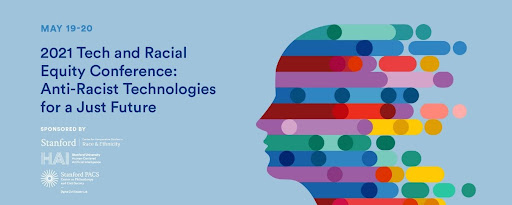
The Technology and Racial Equity Initiative, which advances racial justice in the analysis, production, an deployment of new technologies, was founded in 2019 by the Center for Comparative Studies in Race and Ethnicity (CCSRE) and its partners, the Stanford Digital Civil Society Lab and the Institute for Human-Centered Artificial Intelligence (HAI), as part of an effort to expand the center’s cross-disciplinary partnerships with practitioners and researchers to create more student learning opportunities at the intersections of racial equity, public policy, and emerging technologies.
In 2021, the initiative offered a variety of programs, including a virtual conference and practitioner and graduate fellowships.
The conference, which took place May 19-20, brought together researchers, policymakers, technologists, and advocates to address technology’s new threats to racial equity and new tools for a more just future. Panelists discussed issues ranging from smart cities and racial justice to built-in bias in digital tools, such as Blockchain for Digital Identity, community organizing and accountability, and worker equity in digital food supply chains.
Learn more about the conference.
- A People-centric Smart City for Racial Justice
- Decentralized Ledgers and Equity: Key Perspectives
- Digital Emancipation in Latin America
- Centering Racial Justice for Workers and Communities in Digital AgriFood Systems
- Police Technology and Abolitionist Movements
- Ruha Benjamin: Anti-Racist Technologies for a Just Future (Keynote)
Race and Technology Practitioner Fellowship
To date, there have been 24 Tech and Racial Equity Practitioner fellows, who support social sector leaders to work on ideas that advance justice at the intersections of race and technology. The fellowship allows working people to dedicate a portion of their time to advancing an idea or project that doesn’t quite fit into their day job. The goal is to provide time, space, expertise, financial support, and other resources to help transform ideas into prototypes or action, and to build a cohort of fellows to support ongoing learning, community, and coalition building.
Learn more about the practitioner fellowship.
- Accountability and Reparations for “Predictive” Policing
- Building Power and Intersectional Data for a Just Recovery
- Decentralized Lending for Unbanked Communities
- Identifying and Countering Racial and Economic Bias in Digital Civic Engagement Tools
- RUBY: A Digital Toolkit for Black, Brown, and Indigenous Youth Activists
- YASS, QUEEN!: A Proposal of an AAVE to combat racial bias in Sentiment Analysis Research
Technology & Racial Equity Graduate Fellowship
In spring 2021, CCSRE in partnership with the Stanford Digital Civil Society Lab and Stanford HAI selected 12 graduate student fellows. Throughout the 2021-22 academic year, fellows are participating in biweekly workshops to develop their research and collaborate on joint projects; take part in a speaker series with faculty and invited guests to develop a shared intellectual foundation; and workshop their research and projects with work-in-progress reviews with their peers. Fellows also work in groups on public-facing writing or media projects, racial justice and ethics workshops, position papers, and more.
Learn more about the 2021 fellows.
See the 2021 grantee project, Summer Fellowship for Public Sector AI Governance (PS-AIG).
University of California, Berkeley: Pipeline Cultivation with the Algorithmic Fairness and Opacity Group
An interdisciplinary research group housed at the UC Berkeley School of Information, the Algorithmic Fairness and Opacity Group (AFOG) brings together faculty, postdocs, and graduate students from information studies, sociology, law, communication, media studies, computer science, and the humanities, among others.
In collaboration with the D-Lab and CalNERDS (New Experiences for Research and Diversity in Science), AFOG developed the following programming to support undergraduate students from diverse backgrounds and disciplines to deepen their technical skills and explore the social and political implications of algorithmic systems.
The PIT-UN Lecture Series
Fiat Justice Scholars Program
Launched in June 2021, the program invited 20 students to imagine themselves as public interest technology practitioners through events that connect them to scholars and practitioners in the field. Learn more about AFOG.
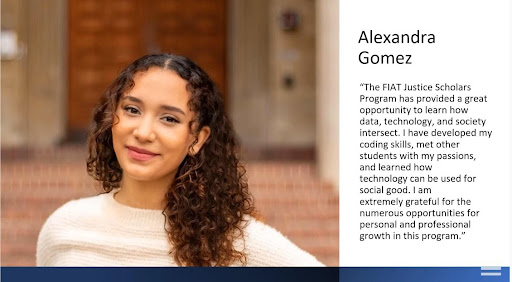
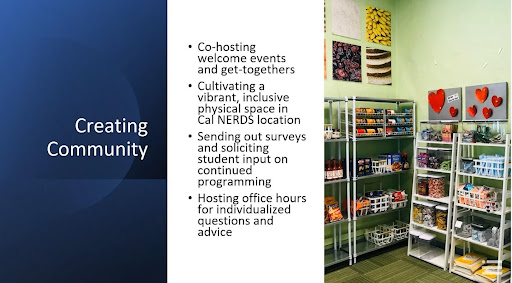
The University of Texas at Austin: The PIT-UN Social Justice Informatics Faculty Fellows Program
The project team launched the program with the 2020 Informatics Education conference, which took place on March 3-4 and brought together representatives from 30 institutions and from public and private institutions.
Principal investigator Kenneth R. Fleischmann, a professor and director of undergraduate studies in the School of Information, outlines the second iteration of the program — the PIT-UN Social Justice Informatics Faculty Fellows Program, a yearlong fellowship that will provide training in social justice informatics, produce collaborative cross-institutional research teams, and provide a proof-of-concept for citywide collaboration across universities, government, and nonprofits.
See the 2021 grantee project, Improving Access to Justice through the Strategic Analysis of Litigation Events.
University of Michigan: Public Interest Technology Knowledge Network
Bringing underrepresented lived experiences under the spotlight, the PIT Knowledge Network (PIT-KN) is aimed at ensuring balanced and inclusive solutions in the field of public interest technology.
Learn more about PIT-KN and see the 2021 grantee project, Data Learning for Better Drinking Water in Small Utilities.
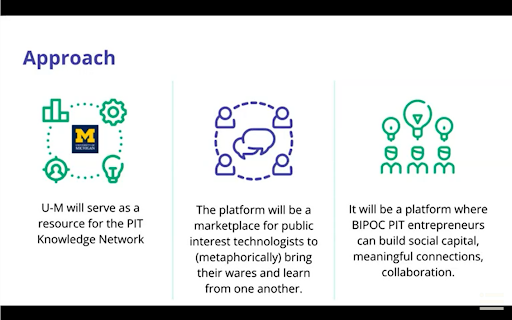
University of Virginia: Community Fellows Program
Spearheaded by the Link Lab and the Center for Civic Innovation, the Community Fellows program supports community members who are civic innovators piloting ideas to improve social welfare. In 2019, Link Lab joined forces with the schools Data and Architecture, the schools of Engineering and Applied Science and of Continuing and Professional Studies at the University of Virginia and the nonprofit Smart Cville to launch the Center for Civic Innovation. The partnership formed to create a public forum where academics, citizens, and local leaders could discuss ideas around using technology and data for novel approaches to solving complex problems.
The 2021 cohort consists of 19 fellows, who are ages 18 to 69 and from diverse groups, such as underrepresented students, civic organizations, and nonprofits. They are working on 13 projects. See all of the projects and learn about the project plans for 2022.
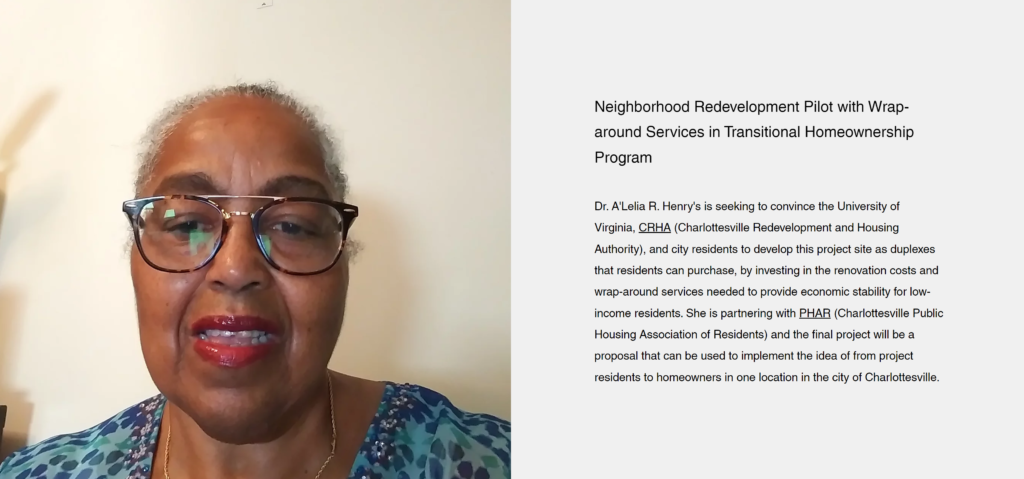
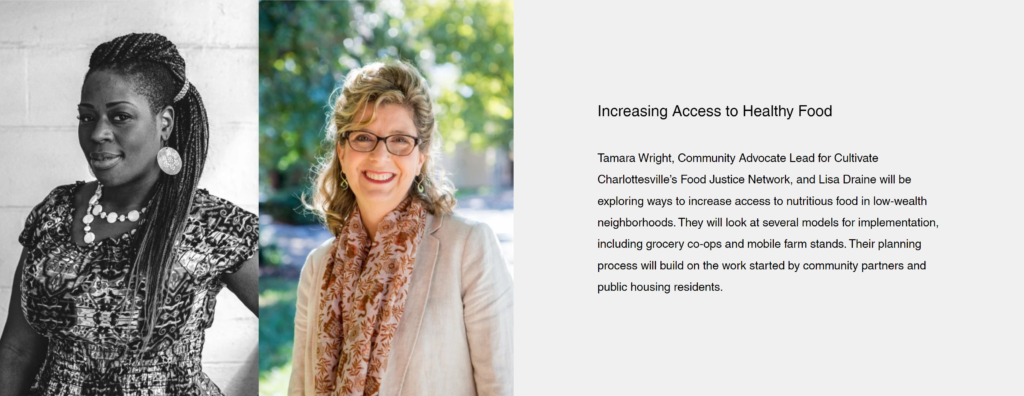
Learn about the program outcomes thus far and the upcoming playbook that other communities can use to create their own fellowship:
Related Reading:
- Center for Civic Innovation fellows addressing issues in Charlottesville
- Link Lab Partners with the Center for Civic Innovation to Support Citizen Innovators
- UVA Engineering Graduates, Now Teachers Themselves, Demonstrate to Future Engineering Leaders the Power of Service and Collaboration
- Grantee Spotlight: University of Virginia’s Barbara Brown Wilson and Michele Claiborne
The Labs, Clinics and Academic Pathways
Experiential PIT learning is happening throughout the U.S. and these PIT-UN institutions.
Boston University: Justice Media Co-Lab
Powered by BU Spark!, the Justice Media co-Lab is a collaboration between Computing and Data Sciences (CDS) and the Department of Journalism at the College of Communication at Boston University. The program brings together a diverse set of students with backgrounds in journalism or computing and data sciences to work on computational journalism projects in partnership with external media partners. The aim is to prepare the next generation data-driven investigative reporters in service of the public interest.
In 2021, the co-Lab has worked with the Boston Globe, Bay State Banner, and WGBH radio station to produce numerous stories, including:
- Population Changes Upend Voting Patterns
- Boston Struggles to Boost Minority, Female Labor Force in Construction
- Massachusetts Police Data Points to Racial Disparities in Arrests
- The Color of Public Money: Black Businesses’ Share of Public Contracts Has Declined Over 20 Years
- How the Secretive ‘Discipline’ Process for Federal Prosecutors Buries Misconduct Cases
- Learn about the program plans for 2022.
Investigative Journalism Projects:
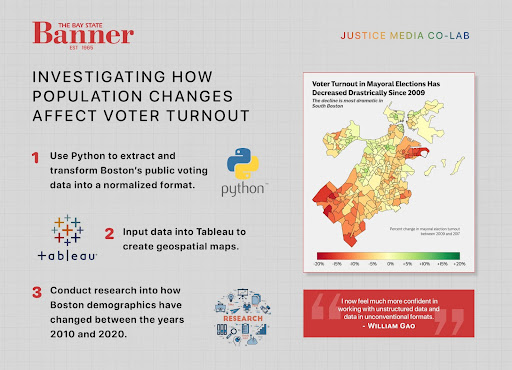
Massachusetts Institute of Technology: Building a Cybersecurity Clinic
Established in 2020, the MIT Cybersecurity Clinic provides students primarily with a background in computer science and urban planning an opportunity to help assess the cybersecurity vulnerability of American cities, towns, and hospitals by leveraging defensive social engineering. The clinic also consults with public sector clients to provide clinical learning opportunities.
The clinic features a semester-long course where students take a series of online instructional modules, complete an accreditation exam certifying their ability to work as cybersecurity risk assessment professionals, and then work as teams to provide assessments for cities, towns, and hospitals. At the end of the semester, the students’ cybersecurity vulnerability assessments are shared with their respective client communities.
Read about the 2021 grantee project, Scaling-up of PIT-UN grant to MIT’s Cybersecurity Clinic to Create a National Consortium of University-based Cybersecurity Clinics.
City University of New York: Intentional Learning Communities
The Rev. Dr. Kathleen M. Cumiskey, a professor in the Psychology Department, and Women, Gender and Sexuality Studies Program of the City University of New York (CUNY) College of Staten Island (CSI), leverages CSI’s relationships with the community to recruit a diverse group of local high school students for an intentional learning community centered around PIT. The pipeline program focuses on “creating real, tangible workforce development slash college and career pipelines from area high schools and underserved communities right into CSI,” Cumiskey told New America in June 2021.
“One of the things that is truly unique about our program … is that we’re not starting with students who have any interest in computer science or engineering or math,” says Cumiskey. While most students are interested in the humanities and the arts, the program encourages them to consider their career goals through the lens of PIT, she says.
Read about the 2021 grantee projects: Building the CUNY PIT Lab and Establishing the ASRC IlluminationSpace as a Hub for Public Interest Technology, STEM Pathways, and Science Communication and Outreach at CUNY
Miami Dade College: Geographic Information Systems for Environment and Community, Phase 2 (GISEC2)
Launched in 2019, Geographic Information Systems for Environmental Awareness and Community Engagement (GISEC) set out to create a pathway for students in Geographic Information Systems (GIS) technology and to enhance technological applications of public interest with an emphasis on environmental hazards awareness and community engagement in Miami-Dade County, a minority-majority urban area significantly affected by, and at ongoing risk for, natural disasters.
GISEC2 expanded the program to engage 40 high school students to complete the 21-credit college credit certificate (CCC) in GIS with A.S. and B.S. degrees as a model. The goal was to have the students graduate with a certificate in GIS from Florida International University as an educational pathway from high school to graduate studies for minority students.
Learn more about the 2021 grantee project, GISEC3: Social and Urban Vulnerability Analysis for Resilience Building.
Pepperdine University: Professional Certificate in Leading Smart Communities
In fall 2021, the Pepperdine University School of Public Policy offered a virtual professional certificate in Leading Smart Communities. Students learned from leaders in government technology how to better use the new technology platforms of today, and they gained a valuable understanding of the government technology game-changers of the future.
The certificate program was delivered virtually four times from fall 2020 to fall 2021. In each offering, participants attended 2½-hour sessions weekly for five weeks. The sessions included:
- Introduction to the professional certificate.
- Cyber Security and Risk: Fundamentals for developing a risk-based approach for smart cities.
- Digital Communications Strategy: What public administrators can learn from Silicon Valley.
- Basic Analytics and Artificial Intelligence for Managers.
- Building smarter and more sustainable communities in the 21st century and sharing of group projects/City Manager Reports.
Each session consisted of a lecture by the rotating presenter, time to workshop a group project with predetermined teams, and an opportunity to raise questions. After each session, participants were asked to submit a 100- to 200-word journal entry reflecting on the content of the session. During the last session of the program, participants presented their collaborative group projects to the cohort.
Learn more about the professional certificate.
Related Reading:
Rochester Institute of Technology: Support Public Interest Technology in Tribal Communities
This project provides a model for PIT career pipeline and job placement within tribal communities. Foundational to the work is a framework of a well-established faculty-tribal relationship and RIT’s Native American Future Stewards Program (FSP) and its tribal affiliations. The project also entails a working group, three student fellowships, and two faculty mini grants.
Tribal Community Tools
Paul Shipman, associate professor in the Thomas H. Gosnell School of Life Sciences:
“As tribes seek to maintain unique cultural identities and improve life for their citizens through economic development, there is a constant ebb and flow of challenges as tribes fight against intrusions and abuses against their sovereignty and make slow gains in maintaining and reestablishing control over their tribally owned lands and cultural and natural resources,”
“PIT offers vital tools for tribal communities to successfully overcome and deal with challenges and opportunities such as these, for economic and social development, and natural and cultural resource management.”
The idea for Shipman’s proposal grew out of 13 years of work providing STEM education workshops to K-12 students at the Cherokee Nation and his involvement in FSP, which indicated a need to empower tribal leaders with a PIT education and tools.
Learn about the 2021 grantee project, Career Launch Pad: Building a Cyber-Protection Apprenticeship.
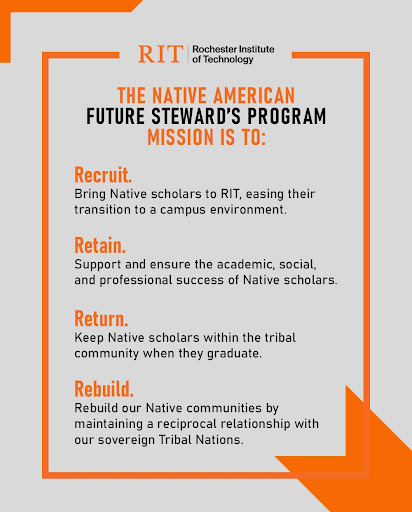
University of Chicago: Expanding the Civic Data and Technology Clinic
Launched in fall 2020, the Civic Data and Technology Clinic (CDTC) pairs student data scientists with nonprofit organizations to work on projects in social and economic justice, sustainability, and climate change.
“The Civic Data and Technology Clinic connects faculty and students with public interest organizations to help them leverage data science, research, and technology to address social challenges, while at the same time providing hands-on training for the next generation of civic technologists,” Kathryn Mattie, program director of M.S. Program in Computational Analysis and Public Policy, told the university’s Center for Data and Computing (CDAC) News in March 2021. “These partnerships with public interest and government organizations empower these groups to use evidence-based and data-driven approaches to expand their impact.”
See past projects, in which students worked in teams to build an application to track palm oil deforestation, a system for informing the public about oil and gas industry effects on local air quality, and a data-driven dashboard for predicting water level changes across the country.
CDTC Winter 2021 Showcase
In March 2021, CDAC released the results below from the winter 2021 quarter on developing projects that started in the fall as well as new projects related to recycling logistics and processing data about international development finance around the world. In addition, researchers, led by Daniel Grzenda, staff data scientist at CDAC, are assembling an open-source platform that provides data science tools and applications developed through CDTC.
- Palm Oil Mill Deforestation Tracker
- Development Bank Monitoring
- Eureka Recycling Data Monitoring
- Water Level Monitoring
Learn more about the CDAC.
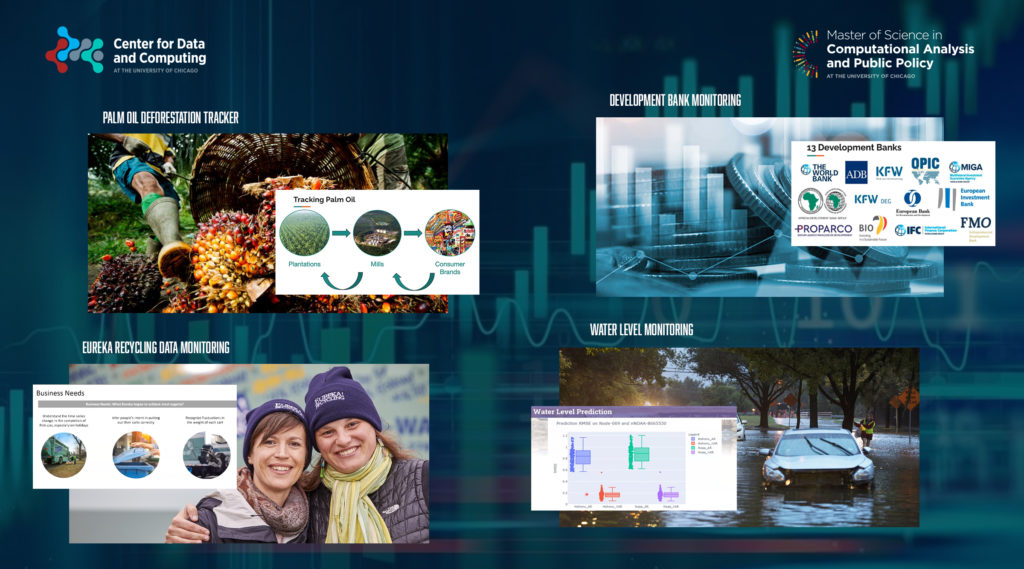
New College Data Science Major
A new undergraduate major in data science was launched in the 2021-22 academic year. According to CDAC News, “Students will learn how to analyze data and apply it to critical real-world problems in medicine, public policy, the social and physical sciences, and many other domains. Students can select data science as their primary program of study or combine the interdisciplinary field with a second major.”
The new major is part of the University of Chicago Data Science Initiative, a coordinated, campuswide plan to expand education, research, and outreach in this fast-growing field. Building on the data science minor, the major introduces new courses and a capstone, in which students will work with government, nonprofit, and industry partners on real-world social impact projects, through the Civic Data and Technology Clinic.
“The courses will take students through the whole data science lifecycle, with all the concepts that they need to know: data collection, data engineering, programming, statistical inference, machine learning, databases, and issues around ethics, privacy and algorithmic transparency,” Dan Nicolae, professor and chair in the Department of Statistics and the College, said to CDAC News in August 2021. “But for data science, experiential learning is fundamental. Students will partner with organizations on and beyond campus to advance research, industry projects and social impact through what they have learned, transcending the conventional classroom experience.”
University of Washington: Enabling Small-Scale Cooperative Cellular Networks for Distributed Internet Access
In 2019, researchers from the Information School at the University of Washington worked with Tacoma Cooperative Network, a grassroots organization providing internet access to Tacoma’s Hilltop neighborhood through a cellular network, and Tacoma Public Libraries to provide inexpensive, publicly owned internet access to marginalized communities in Hilltop, where about a quarter of homes lack broadband access.
- How can a hybrid model of service delivery serve as an effective way of updating community network infrastructure without interrupting or overwhelming system maintainers?
- How do Neighborhood Captains programs that support community outreach transform local structures of social capital, digital literacy, and place-based resilience?
- What role can cooperative cellular networks (CCNs) play in facilitating community discussions of resilience, including community-based development of indicators and related data collection practices?
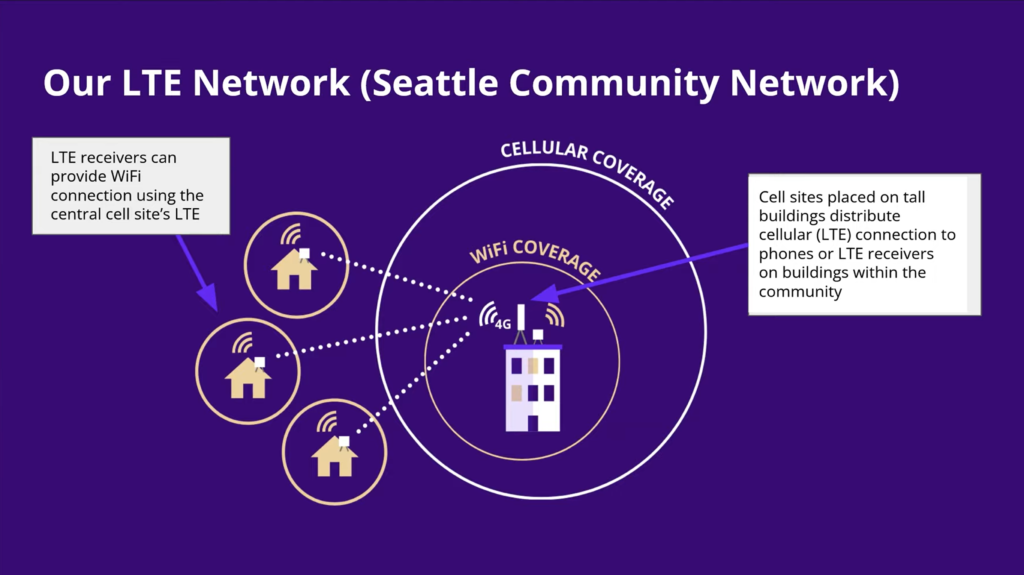
“We view community networking as a model that gets communities to have more ownership over telecommunications infrastructure,” said Jason Young, an Information School senior research scientist. “Our long-term goal is to create a kind of ‘kit’ that can be sent out to organizations dealing with digital equity in both rural and urban spaces.”
The project allowed students to work alongside community organizations to apply learning to real-world settings that responded to needs of the local communities.
See the project plans for 2022 and learn more about key PIT-UN-related initiatives at UW.
The Data Set
Providing the ethical framework required of public interest technology data scientists.
Georgia State University: PIDLit: Public Interest Data Literacy
The PIDLit: Public Interest Data Literacy initiative weds public interest technology and data literacy. PIDLit, which has multiple campus partners, is focused on expanding programs for the public good, building a more diverse pipeline of students pursuing data careers, and reaching first-year students and underrepresented groups.
2021 PIDLit Panel Discussions
- Using Data to Address Evictions and Equity Theft in Metro Atlanta
- Data Literacy as a Tool for Social Justice
- Finding Beauty in Data: The Intersection of Data and Art
- Overcoming Data Challenges in the Fight Against Homelessness
- Defining Data Literacy for College Students
Data in the ATL: A speaker series featuring local professionals discussing real-world applications of data.
Data Ready Videos: The Data Ready YouTube video series has been incorporated into the GSU College to Career initiative’s Ready. Set. Go! course for incoming students.
Learn more about PIDLit and the 2021 grantee project, Data Science for Public Service Consortium.
The George Washington University:
The Ethical Tech Initiative
The Ethical Tech Initiative brings together George Washington University’s experts in law, computer science, engineering, media, and public affairs to advance values of fairness, content integrity, privacy, due process, and transparency within widely deployed technologies. The collaboration also develops technological solutions to provide access to justice in the context of civil actions and educational resources to marginalized and underrepresented communities, including incarcerated persons and other self-represented litigants.
Roundtable Series: The initiative hosted a roundtable series, How Tech Can Improve Access to Justice and Access to Civil Justice and the Role of Technology, where technologists interact with faculty and students on such issues as manipulation through disinformation and the values implicit in algorithmic decision making.
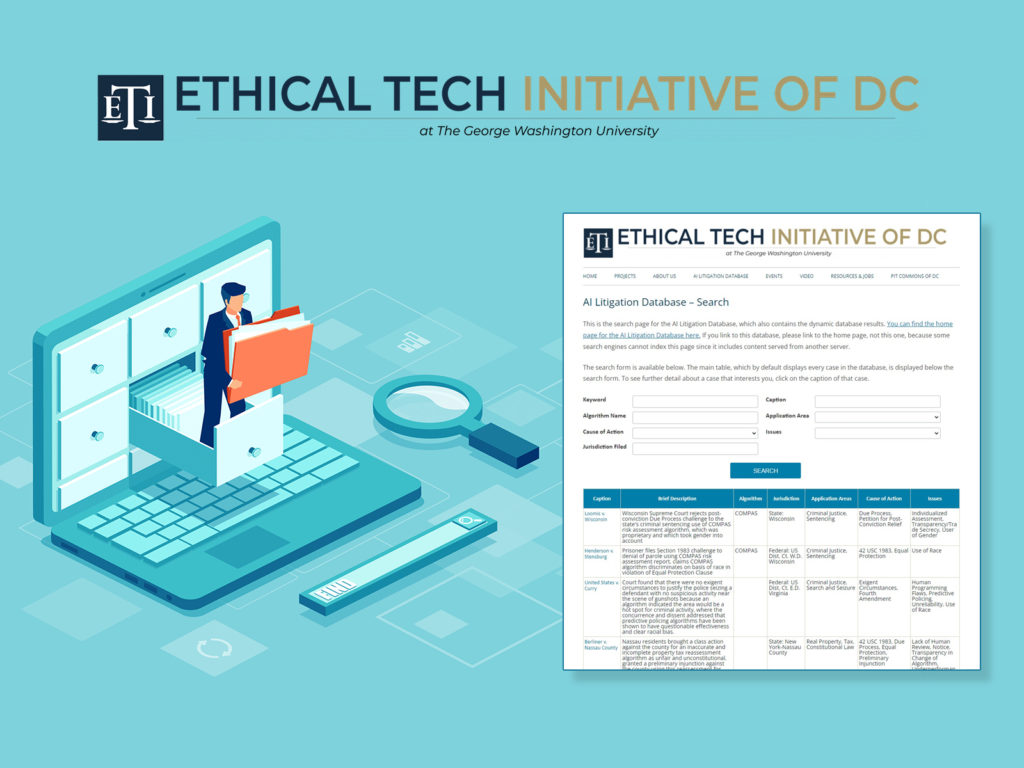
AI Litigation Database: The AI Litigation Database compiles information about ongoing and completed litigation involving artificial intelligence, including machine learning. The database encompasses legal cases about algorithms used in everything from hiring to criminal sentencing decisions to liability for accidents involving autonomous vehicles.
Distinguished Visiting Technologists: Four distinguished visiting technologists — Brian Hill, Toni Marsh, Jason Tashea, and Miguel Willis — studied how marginalized and underrepresented communities can benefit from the development and deployment of access to justice technologies.
Read about the initiative and the project plans for 2022.
Related Reading:
University of Pennsylvania: The Penn-CMU Digital Health Privacy Initiative
Established in 2020, the Penn-CMU Digital Health Privacy Initiative focuses on research, training, and policy to address privacy and discrimination risks associated with the collection and use of health-related digital data.

The George Washington University: GW Coders
GW Coders is a study group that brings together students and faculty to apply computational and data analytics skills in research. The group invites coders to share their skills and tools in no-pressure work-alongs, collaborate on research and coding projects, and meet new peers across GW.
The group held biweekly meetups to discuss topics ranging from webscraping to Linode and Word Press to open AIs and Twitter data and COVID-19. The group also launched an internship program in fall 2021 for students to work on coding projects associated with faculty research public interest projects.
Related Reading:
EXPLORE MORE
THE PIT LIST
Discover new degrees, open access resources, PIT Conferences, PIT-UN Webinars, and more.
6 NEW 2021 NETWORK
CHALLENGE GRANTEES ANNOUNCED
Learn more about the new grantee projects added to the 2021 grantee cohort.

